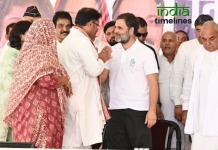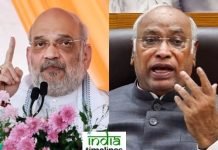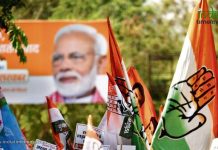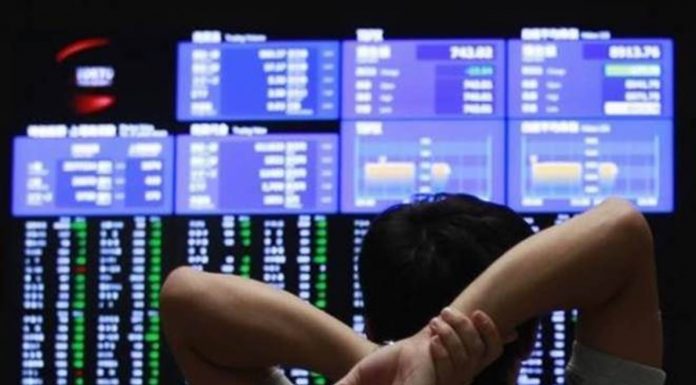
In a dramatic turn of events, former President Donald Trump has claimed victory in the United States’ upcoming election, despite ongoing ballots and final counts not being confirmed. This bold declaration by Trump, made ahead of the official conclusion of the electoral process, has garnered a range of responses across the globe. While the announcement has sparked controversy and divided opinions within the United States, leaders around the world have responded with pledges to cooperate with him if he returns to the White House for a second term.
The situation raises numerous questions about international diplomacy, the future of U.S. foreign policy, and how world leaders will navigate the potential return of a highly polarizing figure. As Trump’s statement reverberates across the globe, it is essential to consider the geopolitical implications of such a claim, how other countries are positioning themselves, and what working with Trump in a second term might mean for their nations.
The U.S. Election Context
To understand the global reaction to Trump’s claim, it is important to recognize the context in which these declarations are being made. The U.S. presidential elections are closely watched by the international community, given the superpower status of the United States and its role in global politics. The United States has long been a key player in shaping the international order, with its economic, military, and political influence extending far beyond its borders.
Donald Trump, who served as the 45th president of the United States from 2017 to 2021, ran for re-election in 2020 but lost to Joe Biden. However, Trump has consistently maintained that the 2020 election was “stolen,” a claim that has been widely debunked by various courts and authorities. Despite this, his political influence remains significant, and he has remained active in U.S. politics, running once again in the 2024 presidential election.
As the election season heats up, Trump’s vocal claims of victory before the official results have been finalized have sparked a mix of concern, confusion, and intrigue among world leaders. His remarks have left many to wonder whether he can truly stage a comeback and what his return to power might look like.
World Leaders’ Initial Reactions
In the aftermath of Trump’s public declaration, reactions from world leaders have been varied, with many countries pledging to work with him if he assumes office once more. Some leaders expressed cautious optimism, while others voiced concerns over the unpredictability of Trump’s leadership style. Despite their reservations, many understand the importance of maintaining strong diplomatic relations with the United States, regardless of who occupies the White House.
Europe’s Cautious Approach
European leaders, who have had a complex relationship with Trump during his first term, responded with a mix of wariness and pragmatism. The European Union, which had often found itself at odds with Trump on key issues like climate change, trade, and multilateralism, has signaled a willingness to engage with the former president once more, recognizing the geopolitical reality that the U.S. is a crucial partner for Europe.
German Chancellor Olaf Scholz, for example, expressed that while Europe would continue to prioritize its values, it would be ready to collaborate with Trump if he returns to power. Scholz emphasized the importance of working together on issues such as security, economic stability, and global trade. However, he also highlighted the need for the U.S. to reaffirm its commitment to NATO and the Paris Climate Agreement, areas where Trump’s first term had seen significant divergences from European priorities.
France’s President Emmanuel Macron, a vocal critic of Trump’s foreign policies, echoed a similar sentiment. He stated that France would work with any U.S. administration but would also continue to push for policies that align with European interests, particularly on climate change and international cooperation.
Despite their criticisms of Trump’s first term, European leaders seem to recognize that diplomacy requires engagement. They have expressed hope that a second Trump presidency might be more focused on pragmatic cooperation, as opposed to the unpredictable rhetoric and actions that defined much of his first term.
Asia’s Strategic Calculations
In Asia, the reaction to Trump’s claim of victory has been similarly measured, with key leaders indicating their readiness to work with him, despite the challenges his first term presented to regional security and economic relationships. Countries like Japan, South Korea, and India, which have strategic partnerships with the U.S., are particularly focused on maintaining strong ties with the United States, regardless of who occupies the Oval Office.
Japanese Prime Minister Fumio Kishida, who worked closely with Trump during his first term, made it clear that Japan would continue to prioritize its security alliance with the U.S. Kishida expressed confidence that Japan would be able to collaborate with Trump on regional security matters, particularly concerning North Korea’s nuclear ambitions and China’s growing assertiveness in the Indo-Pacific region.
India’s Prime Minister Narendra Modi also extended his willingness to cooperate with Trump if he wins the 2024 election. The U.S.-India relationship has grown significantly during the Trump administration, particularly in the areas of defense, trade, and technology. Modi’s government has focused on strengthening ties with the U.S. as part of its broader strategy to counter China’s rising influence. Modi’s message reflected a pragmatic approach, emphasizing the need for continued partnership with the U.S. for the benefit of regional and global stability.
South Korea’s President Yoon Suk-yeol similarly affirmed the importance of maintaining strong U.S.-South Korea relations. South Korea, which is directly impacted by North Korea’s actions and China’s growing influence, views the U.S. as a critical ally in its efforts to maintain security and stability on the Korean Peninsula.
Middle East Dynamics
The Middle East has been a region where Trump’s policies, particularly his approach to Iran, Israel, and the broader Arab world, have had significant implications. Many leaders in the region have expressed a keen interest in working with Trump again, especially given the success of his “Abraham Accords” peace initiatives, which led to normalization agreements between Israel and several Arab states.
Israeli Prime Minister Benjamin Netanyahu, who had a close relationship with Trump during his first term, wasted no time in offering his congratulations and signaling his readiness to continue cooperation. Netanyahu has praised Trump’s pro-Israel policies, including the recognition of Jerusalem as the capital of Israel and the withdrawal from the Iran nuclear deal, policies that resonate with many in Israel’s political establishment.
In the Gulf, leaders such as Saudi Arabia’s Crown Prince Mohammed bin Salman (MBS) and the United Arab Emirates’ (UAE) leaders have also indicated their preference for Trump’s return, given his more favorable stance toward the region’s autocratic leaders and his willingness to challenge Iran’s regional influence.
Latin America and Africa’s Considerations
In Latin America and Africa, the response to Trump’s claim of victory has been more cautious. Many Latin American leaders, particularly those from left-wing governments, have expressed concerns about a potential second Trump term, given his past rhetoric on immigration, trade, and his decision to withdraw from the Paris Climate Agreement. However, leaders in countries such as Brazil, led by President Luiz Inácio Lula da Silva, have signaled that they will work with the U.S. on key issues, particularly trade and environmental concerns.
In Africa, Trump’s foreign policy was often seen as lacking attention to the continent’s needs. However, many African leaders, who have been keen to strengthen economic ties with the U.S., have stated that they will work with any administration that offers opportunities for growth and development. Their focus remains on securing investment, trade deals, and collaboration on issues such as counterterrorism.
Conclusion: A World Awaiting Trump’s Return?
As world leaders pledge to work with Donald Trump should he return to the presidency, the global community braces itself for the potential implications of his second term. While some leaders express hope for pragmatic cooperation, others remain cautious, knowing that Trump’s policies often defy conventional diplomacy and can be unpredictable.
The stakes for the U.S. election are not just domestic; they are deeply intertwined with global dynamics. Trump’s return to power could shift alliances, reshape international policy, and introduce new uncertainties into the global landscape. For now, world leaders are adopting a wait-and-see approach, prepared to navigate the challenges of working with a man who has profoundly reshaped global politics during his first term and whose political trajectory continues to captivate and polarize the world.





































Thank you for your sharing. I am worried that I lack creative ideas. It is your article that makes me full of hope. Thank you. But, I have a question, can you help me?
Your article helped me a lot, is there any more related content? Thanks!
You really make it appear so easy with your presentation however I in finding this topic to be really something that I believe I might by no means understand. It seems too complex and extremely broad for me. I am having a look ahead to your subsequent publish, I¦ll attempt to get the dangle of it!
Wow, wonderful blog structure! How long have you been running a blog for? you made running a blog glance easy. The total look of your website is great, let alone the content material!
Thanks for sharing. I read many of your blog posts, cool, your blog is very good.
I as well believe hence, perfectly written post! .
Wonderful blog! I found it while searching on Yahoo News. Do you have any tips on how to get listed in Yahoo News? I’ve been trying for a while but I never seem to get there! Thanks
Can you be more specific about the content of your article? After reading it, I still have some doubts. Hope you can help me.
As a Newbie, I am continuously browsing online for articles that can help me. Thank you